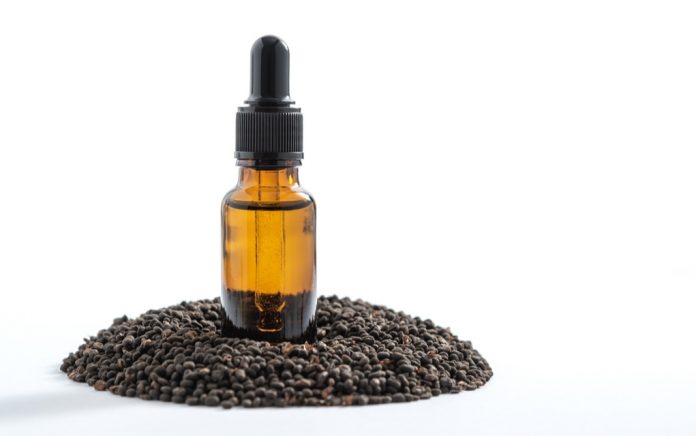
When you think about skin care products, “bakuchiol” may not be the first ingredient that pops into your mind. In fact, it’s very possible “retinol,” the vitamin A derivative, is what you associate with skin products. However, that way of thinking is beginning to change.
What is bakuchiol?
A popular herb among Ayurvedic and Chinese medicine communities, Psoralea coryifolia (aka, babchi), is the source of bakuchiol, a compound valued for its ability to effectively manage various skin conditions. This antioxidant is found in the seeds and leaves of the herb. It’s important to note that P. corylifolia, which is found in tropical and subtropical areas of the world, is an endangered plant.
Read about great skin care naturally
The noted important characteristics of bakuchiol, such as its antitumor, antibacterial, anti-inflammatory, antifungal, and antimicrobial properties, have made it popular as a health care and cosmetic ingredient, especially for the skin. These important characteristics also highlight the need to be sure this herb is preserved and protected so we’ll have it for a very long time.
How does bakuchiol compare to retinol?
For decades, the vitamin A derivative retinol (a form of retinoid and the third strongest in this classification) has been the golden child of skin care. Ever since it was approved for the treatment of acne in 1971, it has been included in a wide variety of cosmetic and health care products. That’s because it can help improve pigmentation, texture, and tone of the skin by promoting renewal of skin cells and stimulating the production of collagen.
Unfortunately, retinol also has some negative effects. It can cause dry skin, irritation, color changes to the skin, hypersensitivity to sunlight, redness, swelling, crusting, or blistering. Although many people can benefit from retinol, anyone with sensitive skin may experience significant skin reactions.
Bakuchiol, on the other hand, has not been shown to cause these problems. At the same time, it is effective in managing common skin conditions.
Read about skin care products: steer clear of these 5 ingredients
For example, in a 2019 study researchers conducted a direct face-off between bakuchiol and retinol and its impact on facial aging. Both ingredients significantly reduced hyperpigmentation and the amount of wrinkles, but bakuchiol was associated with much less facial scaling and stinging.
What are the benefits of bakuchiol?
Would you like the benefits of retinol without the side effects? Bakuchiol could be the answer for you. One reason why bakuchiol can provide advantages similar to those of retinol is that both compounds work through the same receptors.
Dr. Debra Jaliman, assistant professor in the department of dermatology at the Icahn School of Medicine at Mount Sinai notes that “bakuchiol helps prevent fine lines and wrinkles, and helps with pigmentation, elasticity, and firmness.” These are the same benefits you can expect from retinol. More specifically, bakuchiol boosts skin cell turnover, which in turn stimulates the production of collagen and reduces the signs of aging.
For individuals who are looking for skincare products that are not derived from animals, bakuchiol is a vegan choice. Some forms of retinol are derived from animals.
How to use bakuchiol
A number of skincare product lines use bakuchiol. Regardless of the product you buy, it’s easy to work bakuchiol into your daily skincare routine. Simply apply bakuchiol night cream or serum products before you go to bed, just as you would do with a retinol product; that is, before your regular serums or moisturizers.
Unlike retinol, however, bakuchiol can be used twice a day because it does not irritate or dry out your skin. Generally, it is safe for all skin types.
Bottom line
The introduction of a new skin care ingredient that provides the same benefits of the traditional retinol but without the side effects for those with sensitive skin is welcome news for many people. If you use a bakuchiol product, please let us know about your experience.
Sources
Burcham C. Bakuchiol: the new, natural alternative to retinol. Byrdie 2019 Oct 5
Dhaliwal S et al. Prospective, randomized, double-blind assessment of topical bakuchiol and retinol for facial photoageing. British Journal of Dermatology 2019 Feb; 180(2): 289-96
Khushboo PS et al. Psoralea corylifolia Linn. “Kushtanashini.” Pharmacognesy Review 2010 Jan-Jun; 4(7): 69-76
Mackenzie M. What is bakuchiol? Experts explain the benefits of the natural alternative to retinol. Allure 2018 Sep 7
Nabi NG, Shrivastava M. Endangered medicinal plant Psoralea corylifolia: traditiona, phytochemical, therapeutic properties and micropropagation. Pharmaceutical and Biosciences Journal 2017; 5(1): 40-46
Rekstis E. Try Bakuchiol, Retinol’s Gentle, Plant-Based Sister for Fresh, Healthy Skin. Healthline 2018 Nov 13
WebMD. Retinoid treatment and your skin.










